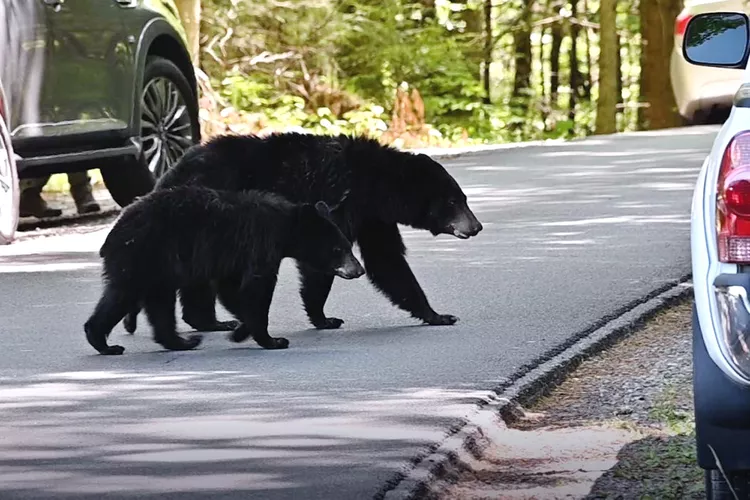Great Smoky Mountains National Park Faces Road Closure Amid Bear Activity
Great Smoky Mountains National Park has closed a park road due to bear activity during a time when the animals are foraging for food. The National Park Service (NPS) closed Rich Mountain Road in the Cades Cove area over the weekend, noting some bears have become habituated to humans and vehicles, according to the NPS. The closure is particularly important as it coincides with a critical time of year for the bears, given that primary food sources, such as berries and acorns, are currently out of season.
Closure and Its Context
The decision to close the road followed an incident where a visitor in a vehicle endured minor scratches from an encounter with a bear in the vicinity. “By closing Rich Mountain Road, we are protecting people and bears,” Cassius Cash, the park’s superintendent, stated. This proactive measure aims to prevent potentially dangerous situations for both visitors and the wildlife.
:max_bytes(150000):strip_icc():format(webp)/TAL-black-bear-great-smoky-mountains-national-park-GSMNPBEARS0823-4c4981832431495681fbfeb91bd2bf4c.jpg)
Previous Warnings from the National Park Service
The NPS emphasized the ease with which bears can become food-conditioned over time when park visitors dispose of food improperly or attract bears with human food. These food-conditioned bears may become aggressive, approaching vehicles and people, leading to potentially hazardous situations.
Visitor Safety Recommendations
Experiencing wildlife is one of the key attractions for visitors to national parks; however, the NPS urges travelers to maintain a safe distance. Visitors should remain at least 150 feet away from bears and must never intentionally approach, feed, or leave food unguarded for them. This is not the first instance in which Great Smoky Mountains National Park has implemented road closures due to bear encounters. Such actions are essential for the protection of both wildlife and park visitors.
Moreover, the NPS routinely warns against interactions with wildlife. Recently, the park service cautioned visitors to exercise utmost care following injuries sustained from encounters with wild bison at other parks. In addition, past advisories have addressed the dangerous behaviors associated with licking Sonoran Desert toads, known to secrete potent toxins.




